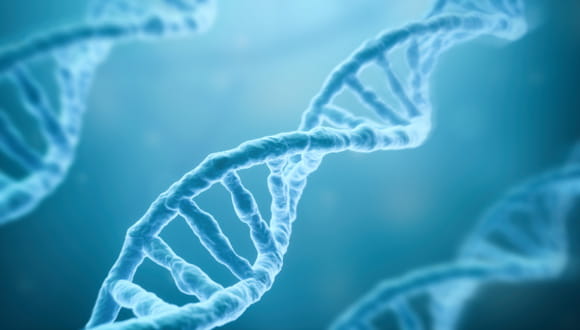What to Do if an Inherited Disease Runs in Your Family
Dec. 23, 2019 - Katie McCallumYour genes play an enormous role in what makes you, well, you. Since you inherit your genes from your parents, you tend to share things like hair type or athletic ability.
"Unfortunately, we can also inherit 'changes' in genes from either our mother or father, which can increase the chances of developing an inherited disease, such as cancer," says Tiffiney Carter, genetic counselor at Houston Methodist.
Many families have a disease or condition that seems to "run in the family." But when should you actually worry about it?
Carter recommends following these steps if you think you or your loved ones are at risk for developing an inherited disease.
Learn about your family's health history
The first step in understanding your risk is to learn about your family's health history. This means collecting information about relatives, including your parents, sisters, brothers, grandparents, aunts, uncles and cousins.
"It's a good idea to ask about your family members' major medical conditions, including breast cancer (male and female), colon cancer, ovarian cancer, pancreatic cancer, prostate cancer, stomach cancer, as well as heart conditions like arrhythmias, hypercholesterolemia and an enlarged heart," says Carter.
She also recommends gathering information about relatives:
- Age at diagnosis of a major medical condition
- Ethnic background, for example Ashkenazi Jewish ancestry
- Cause of death, as well as age at death
- "Having three or more close relatives with the same medical condition means you could be more likely to develop that condition yourself," explains Carter.
Know which diseases can actually be inherited
The pattern of inheritance of some diseases is pretty straightforward, but for others it's more complicated.
Sometimes all it takes to develop a disease is inheriting a gene change from just one parent. This is called an autosomal dominant single-gene disorder and includes:
- Huntington disease
- Marfan syndrome
- Neurofibromatosis type 1
If you have one of the diseases above, there's a 50% chance it will be passed on to each of your children.
Other times, both parents have to contribute a change in the same gene in order for a child to develop the genetic condition. This is called an autosomal recessive single-gene disorder and includes:
- Congenital deafness
- Cystic fibrosis
- Beta thalassemia
- Spinal muscular atrophy (SMA)
- Sickle-cell anemia
- Tay-sachs disease
A recessive single-gene disorder is often passed on by parents who don't know they carry the disease. If both parents are a carrier of a disease, each of their children has a 25% chance of inheriting the disease and a 50% chance of becoming a carrier himself or herself. These diseases usually aren't seen in each generation.
Carter says that all people probably carry about 5 or more genes associated with a recessive disorder that they may not know about.
Therefore, genetic testing or screening is offered to individuals who would like to know if they are carriers of recessive disorders — such as those who plan to get pregnant or have a family history of inherited disease.
Some inherited diseases are more complicated than your genes
For most diseases that "run in the family," it takes more than inheriting just one change in a gene. Diseases and disorders with complex inheritance patterns include:
- Alzheimer's disease
- Arthritis
- Cancer
- Dementia
- Diabetes
- Heart disease
- High blood pressure
- Multiple sclerosis
- Parkinson's disease
- Spina bifida
- Thyroid disorders
"These diseases are influenced by both genes and a number of other factors, such as your environment, lifestyle and diet," says Carter.
Talk to your doctor to determine your risk
If three of more close relatives on one side of your family have, or had, one of the diseases above, be sure to tell your doctor.
Depending on your family history, your doctor may recommend:
- Changes to your environment, lifestyle and diet that can reduce your risk
- Earlier and more frequent disease screenings
- Genetic counseling
When to consider genetic counseling
Your doctor may refer you to a genetic counselor, like Carter, but this doesn't mean you have or will develop an inherited disease.
"A genetic counselor can help you determine whether your family history and genetics increase your risk of developing an inherited disease — as well as the extent of your risk," says Carter. "Depending on your risk, a genetic counselor may recommend genetic testing, discuss preventive medications and surgeries or suggest earlier and more frequent screenings and surveillance."
They can also help you understand the disease risk of your immediate family members, including your children, and offer information and support as you inform them about their possible risk factors.
Genetic testing may be particularly important for members of families affected by a recessive single-gene disorder, especially if the person wants to have a child. Genetic testing can tell a person whether he or she carries a gene for a disorder. If both parents are a carrier of the same disease, each of their children has a 25% chance of inheriting the disease, and a 50% chance of becoming a carrier of the disease.


